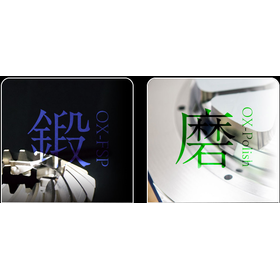Basic principles and operating mechanisms of power conditioners, along with high efficiency, stabilization, and optimal control.
S11226
★What are the key issues for power conditioners? What is the adoption status of SiC? ★Understand a multitude of key control technologies and utilize them in circuit design!
Part 1: Mr. Makoto Saito, Lecturer, Department of Electrical Engineering, Shibaura Institute of Technology Part 2: Mr. Naoki Nishio, Section Chief, Power Converter Technology Division 1, Solar Power Generation Systems Division 2, Mitsubishi Electric Corporation, Nakatsugawa Works Part 3: Mr. Kazutaka Itako, Associate Professor, Department of Electrical and Electronic Engineering, Kanagawa Institute of Technology Target Audience: Researchers and personnel interested in solar power generation and power conditioners Venue: Tekuno Kawasaki, 4th Floor Exhibition Hall [Kanagawa, Kawasaki City] 5-minute walk from Tokyu Mizonokuchi Station East Exit and JR Musashi-Mizonokuchi Station Date and Time: December 21, 2011 (Wednesday) 11:00 AM - 4:30 PM Capacity: 20 people *Please apply early as there may be a rush of applications. Participation Fee: [Early Bird Discount Price] 52,500 yen (tax included, including text costs) for up to 2 people from one company *Limited to Tech-Zone members who apply by December 7. Membership registration is free. *After December 7, the [Regular Price] will be 55,650 yen (tax included, including text costs) for up to 2 people from one company.
Inquire About This Product
basic information
【1. Lecture Summary】 In recent years, the development of new energy infrastructure has been advancing on a global scale. In Japan, the purchase price for solar power from general households was raised to 48 yen/kWh last November, and both the public and private sectors are working together to promote and expand solar power generation. This seminar will provide a comprehensive explanation of the technology behind power conditioners necessary for solar power generation, covering everything from basic principles to the latest trends. 【2. Lecture Summary】 Solar power generation systems are being increasingly adopted in Japan, Europe, and North America. This lecture will explain the technological trends of power conditioners, which are key components of grid-connected solar power generation systems that are currently mainstream, as well as related equipment. 【3. Lecture Summary】 The MPPT control of power conditioners uses an algorithm known as the hill-climbing method; however, it has the drawback of becoming unstable under conditions such as sudden changes in solar intensity or partial shading. This lecture will discuss an IV characteristic scanning MPPT control method that operates reliably even under such conditions.
Price range
P2
Delivery Time
P2
Applications/Examples of results
【Program 1】 1. Basics of Power Conditioners 1.1 Basic Structure of Power Conditioners 1.2 Demand for Efficiency Improvement → Why is Efficiency Improvement Necessary? 1.3 Main Types and Characteristics of Solar Cells 1.4 Maximum Power Point Tracking (MPPT) Control 2. Practical Aspects of Power Conditioners, Basic Circuits and Operating Principles 3. Potential of SiC Power Conditioners 3.1 Principles and Characteristics of SiC Power Semiconductor Devices 3.2 Expected Performance and Functions 4. Challenges in the Practical Application and Dissemination of Power Conditioners 【Program 2】 1. Market Trends of Solar Power Generation Systems 2. Functions and Features of Solar Power Generation Systems and Component Devices 3. Technological Trends in Power Conditioners 3-1. Trends in Product Specifications 3-2. Improvement of Power Generation Efficiency 3-3. Response to High Voltage Inputs 3-4. Methods for Loss Reduction 3-5. Examples of Efficiency Improvement 3-6. Applications of SiC Devices 3-7. Optimal Control Technologies 4. Additional Functions and Peripheral Devices 4-1. Functions of Solar Cell String Module Units 4-2. Monitoring Functions 4-3. Data Loggers 5. Coordination with the Grid
Company information
Our company has developed its business from "seminar planning" to various forms such as "lecturer dispatch," "publishing planning," "technical consultant dispatch," "trend research," "business matching," and "business development consulting," in order to support clients in a wide range of fields including chemistry, electronics, automotive, energy, medical devices, food, and building materials. By doing so, we have advanced our company and opened up new markets. AndTech promises to continue listening to our clients' voices, entering the business areas and markets they desire, and to remain a company that is loved by our clients, as we share their challenges, think together, and forge new paths.














